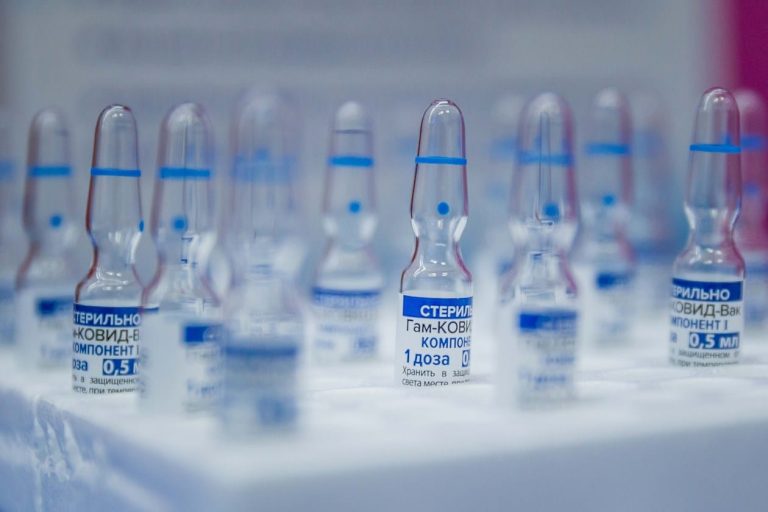11 de agosto 2021

Chinese Megastores are Suffocating Nicaraguan Businesses

PUBLICIDAD 1M
PUBLICIDAD 4D
PUBLICIDAD 5D
Nations are scrambling to administer shots to millions of people, after Russia fails to deliver on promises of Sputnik V

Archive photograph of various doses of the Sputnik vaccine V.EFE / Miguel Gutiérrez / Archivo
A recent post on Sputnik V’s Twitter account boasts that Chile has become the 69th country to register the Russian vaccine. “Sputnik V is now authorized in 69 countries with a total population of over 3.7 billion people,” reads the text.
This upbeat tone is in stark contrast with recent reports from a number of Latin American countries who have voiced frustration over large-scale delays to Sputnik deliveries, revealing that Russia’s vaccine diplomacy might be failing to live up to promises.
Guatemala, a country of 18 million, became the latest country to renegotiate its Sputnik contract, cancelling half of its 16 million dose because of delays, the president announced on July 28. Negotiations with The Russian Direct Investment Fund (RDIF), which markets the vaccine abroad, began at the end of June after deliveries were delayed and new daily cases were rising.
Sputnik has set out an ambitious delivery plan, promising 700 million doses worldwide this year. But supply side issues have halted vaccination drives in a number of countries. In July, India put off its rollout after the Russian producer failed to deliver equal quantities of Sputnik’s two doses. Earlier this month Ghana cancelled its contract of 3.4 million doses after a Dubai-based middleman couldn’t supply more than 20,000 doses. And Argentina, an early Sputnik V champion, hinted at stopping its contract of 30 million doses in a leaked email from a presidential Covid adviser in July, showing Argentine authorities pressuring RDIF to deliver second doses in accordance with their agreement.
“We always responded by doing everything possible to make Sputnik V the greatest success, but you are leaving us with very few options to continue fighting for you and for this project,” said the email.
While RDIF didn’t respond to Coda Story’s request for comment over worldwide shipment delays, Sputnik’s official Twitter page offers an explanation. “Given unprecedented worldwide demand all vaccine producers are experiencing some short-term supply issues. #SputnikV is in enormous demand as it has demonstrated outstanding efficacy and safety while not having any rare side effects that have been linked to other vaccines.”
Sputnik’s delivery problems are being seen as a significant chapter in vaccine diplomacy. “It’s reasonable to start wondering whether or not Russia’s aggressive vaccine diplomacy from the very beginning is now backfiring,” said Judy Twigg, professor at Virginia Commonwealth University in Richmond, Virginia, specializing in global health and Russian politics. “The goodwill that was generated by those promises and by the deliveries that have been made so far — at what point does that start to turn into resentment and ill will?”
Sputnik became the world’s first registered vaccine against Covid-19 in August 2020 and began mass vaccinations in December. Russian President Vladimir Putin continues to sound ebullient about its efficacy. “As one of the European specialists said, it’s as reliable as a Kalashnikov rifle,” he said at a government meeting in May.
For critics like Olga Dobrovidova of AKSON, the Russian Association for Science Communication, the Sputnik V rollout bears all the hallmarks of a PR stunt. “Russia was able to exploit an opening in the market in late 2020 and early 2021,” she said. “But there were always concerns regarding Sputnik V production capacity and whether RDIF can in fact fulfil all its orders in time. I guess now we know that it can’t.”
Faced with missed deliveries, some governments are getting impatient and have struck deals with other manufacturers. Authorities in Argentina announced last Tuesday they had signed a deal for 20 million doses with Pfizer and agreed on a 20 million dose contract with Moderna earlier in July.
As Russia’s vaccine diplomacy weakens, the U.S. and the UK, countries previously criticized for hoarding surplus doses and failing to deliver on their commitments to Covax, the global vaccine initiative, have now ramped up donations worldwide. Last week the UK pledged to ship millions of vaccines to some of the world’s vulnerable countries, including Kenya, Jamaica and Cambodia. The U.S. plans to send 500 million Pfizer vaccines to over 90 lower income countries.
According to Twigg, Russia capitalized on being the first country to ship vaccines. “Now we’re shifting into a very different period,” she said. “Western countries are filling in the vacuum that was there before.”
The story you just read is a small piece of a complex and an ever-changing storyline that Coda covers relentlessly and with singular focus. But we can’t do it without your help. Right now, we’re in the middle of our summer membership campaign. Show your support for journalism that stays on the story by becoming a member today. Coda Story is a 501(c)3 U.S. non-profit. Your contribution to Coda Story is tax deductible.
This article was originally published in Coda
Archivado como:
PUBLICIDAD 3M
Confidencial es un diario digital nicaragüense, de formato multimedia, fundado por Carlos F. Chamorro en junio de 1996. Inició como un semanario impreso y hoy es un medio de referencia regional con información, análisis, entrevistas, perfiles, reportajes e investigaciones sobre Nicaragua, informando desde el exilio por la persecución política de la dictadura de Daniel Ortega y Rosario Murillo.
PUBLICIDAD 3D